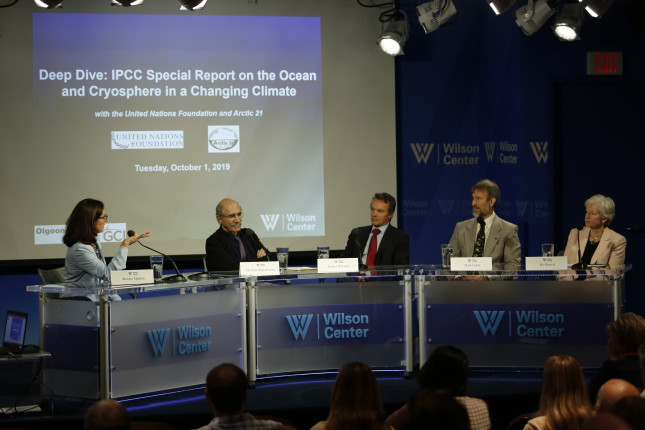-
China’s Risky Gamble on Coal Conversion
›China Environment Forum // Choke Point // January 9, 2020 // By Richard Liu, Zhou Yang & Xinzhou Qian
At the September 2019 United Nations General Assembly (UNGA) Climate Summit, the U.S. delegation, under the shadow of intended withdrawal from Paris, did not volunteer a speaker. Attention instead focused on China. As the world’s largest carbon emitter, China was poised to assert leadership on the climate crisis. However, perhaps lacking the sibling rivalry pressure that brought the U.S. and China together in 2014 on a joint climate agreement, State Councilor and Foreign Minister Wang Yi offered no new commitments: no carbon tax, no increased investment in renewables, and no announcement to set a more ambitious coal consumption cap.
-
Community Input Improves Climate Change-Induced Resettlement Effort
›
In the Global South, climate change-induced resettlement requires a holistic and integrated approach, involving all stakeholders—state institutions, local customary and civil society institutions—and in particular respectful engagement with local traditional actors and networks. In a policy brief for the Toda Peace Institute, we examined climate change-induced resettlement from the Carteret Islands in the Pacific, a case which encompasses a broad range of issues relevant to future relocation efforts elsewhere. Those who seek to make this type of resettlement possible would do well to heed these lessons.
-
Foresight for Action | Improving Predictive Capabilities for Extreme Weather and Water Events in Pakistan
›
Pakistan ranks eighth on the list of countries most affected by extreme weather events (1998–2017 data), according to the 2019 Global Risk Index. With increasing global temperatures, severe weather and water events, like monsoons and droughts, are likely to become even more frequent and extreme in the future. Since the 1960s, Pakistan has observed changes in temperature and precipitation. By the end of the century, Pakistan’s temperatures are expected to be significantly higher than the global average.
-
Three Trends to Track in Population-Environment-Security
› Exactly 25 years ago the international community met in Cairo for the 1994 International Conference on Population and Development. In the aftermath of the Cold War, ethnic conflict seemed to be exploding globally and research on the role of population growth and resource scarcity found an eager audience among policy makers struggling to understand this new international disorder. ECSP’s founding in that same year positioned the program as a leader in bringing together the scholarly and policy communities around non-traditional security issues over the last 25 years. The last two-and-a-half decades have brought tremendous change in population trends, environmental change, and the security landscape. Over the next 25 years three trends will shape the agenda of those working on the nexus of population-environment-security issues.
Exactly 25 years ago the international community met in Cairo for the 1994 International Conference on Population and Development. In the aftermath of the Cold War, ethnic conflict seemed to be exploding globally and research on the role of population growth and resource scarcity found an eager audience among policy makers struggling to understand this new international disorder. ECSP’s founding in that same year positioned the program as a leader in bringing together the scholarly and policy communities around non-traditional security issues over the last 25 years. The last two-and-a-half decades have brought tremendous change in population trends, environmental change, and the security landscape. Over the next 25 years three trends will shape the agenda of those working on the nexus of population-environment-security issues. -
To Address Climate Risks, Advance Climate Security in the United Nations
› Climate change is widely recognised as one of the major forces shaping the future. Climate impacts illustrate in stark clarity how human actions fundamentally affect the basic physical processes of the planet with vast and, in the worst cases, disastrous consequences for communities around the world. Given these profound impacts, climate change is increasingly treated as a security risk. As a changing climate is causing and will continue to cause diverse impacts across the globe, the associated security challenges are multifaceted. They involve human, community, state, and international security risks, and will require responses across all levels of decision-making, from the local to international.
Climate change is widely recognised as one of the major forces shaping the future. Climate impacts illustrate in stark clarity how human actions fundamentally affect the basic physical processes of the planet with vast and, in the worst cases, disastrous consequences for communities around the world. Given these profound impacts, climate change is increasingly treated as a security risk. As a changing climate is causing and will continue to cause diverse impacts across the globe, the associated security challenges are multifaceted. They involve human, community, state, and international security risks, and will require responses across all levels of decision-making, from the local to international. -
Foresight for Action | Ecosystem Degradation, Transnational Migration, and Political Instability: Three Main Tipping Points for East Africa
›
The Horn of Africa faces critical security and climate risks. Persistent droughts have precipitated the onset of food insecurity and waterborne disease, while heavy rain events such as Cyclone Sagar have caused widespread flooding, mudslides, and wind damage. These challenges are increasing in severity against a backdrop of changing demographic trends—including rapid population growth, increased migration, and urbanization—and power struggles both within and between countries in the region.
-
From Caution to Creative Solutions: The Necessary Evolution of the Climate Migration Debate
› Over the years, experts have cautioned against speaking of “climate refugees.” They argue that the term “refugee,” as defined by the 1951 Refugee Convention, only applies to those who flee across borders out of fear of persecution and violence. Furthermore, evidence shows that migration is a complex phenomenon. While climate change may influence decisions to migrate to some degree, it would likely drive internal movement along well-worn migration routes, often rural-urban in nature. Ultimately, experts have argued that policymakers should think of migration as a form of adaptation to climate change, and reject the term “climate refugee.”
Over the years, experts have cautioned against speaking of “climate refugees.” They argue that the term “refugee,” as defined by the 1951 Refugee Convention, only applies to those who flee across borders out of fear of persecution and violence. Furthermore, evidence shows that migration is a complex phenomenon. While climate change may influence decisions to migrate to some degree, it would likely drive internal movement along well-worn migration routes, often rural-urban in nature. Ultimately, experts have argued that policymakers should think of migration as a form of adaptation to climate change, and reject the term “climate refugee.” -
Two Divergent Paths for Our Planet Revealed in New IPCC Report on Oceans and Cryosphere
›
The world’s ocean and cryosphere have been absorbing the heat from climate change for decades, said Intergovernmental Panel on Climate Change (IPCC) Vice Chair Ko Barrett at a recent Wilson Center event on the IPCC’s Special Report on Oceans and Cryosphere. “The consequences for nature and humanity are sweeping and severe,” she said.
Showing posts from category climate change.


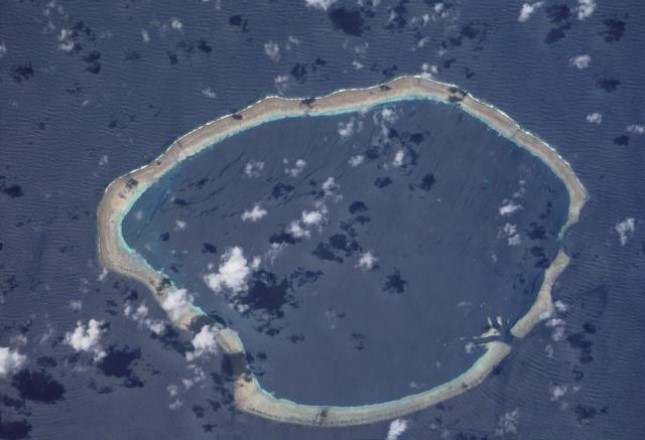
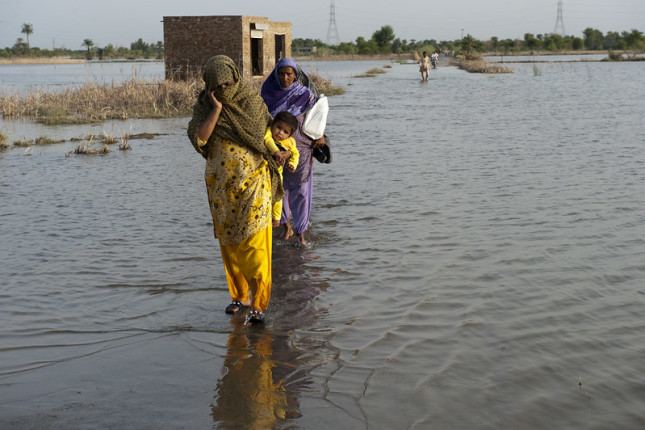
 Exactly 25 years ago the international community met in Cairo for the
Exactly 25 years ago the international community met in Cairo for the 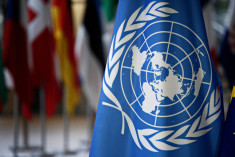 Climate change is widely recognised as one of the major forces shaping the future. Climate impacts illustrate in stark clarity how human actions fundamentally affect the basic physical processes of the planet with vast and, in the worst cases, disastrous consequences for communities around the world. Given these profound impacts, climate change is increasingly treated as a security risk. As a changing climate is causing and will continue to cause diverse impacts across the globe, the associated security challenges are multifaceted. They involve human, community, state, and international security risks, and will require responses across all levels of decision-making, from the local to international.
Climate change is widely recognised as one of the major forces shaping the future. Climate impacts illustrate in stark clarity how human actions fundamentally affect the basic physical processes of the planet with vast and, in the worst cases, disastrous consequences for communities around the world. Given these profound impacts, climate change is increasingly treated as a security risk. As a changing climate is causing and will continue to cause diverse impacts across the globe, the associated security challenges are multifaceted. They involve human, community, state, and international security risks, and will require responses across all levels of decision-making, from the local to international.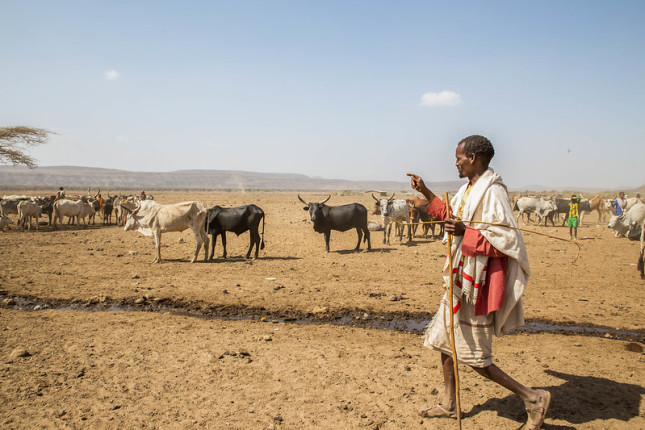
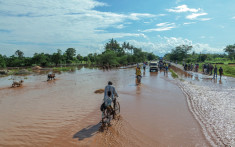 Over the years, experts have
Over the years, experts have 